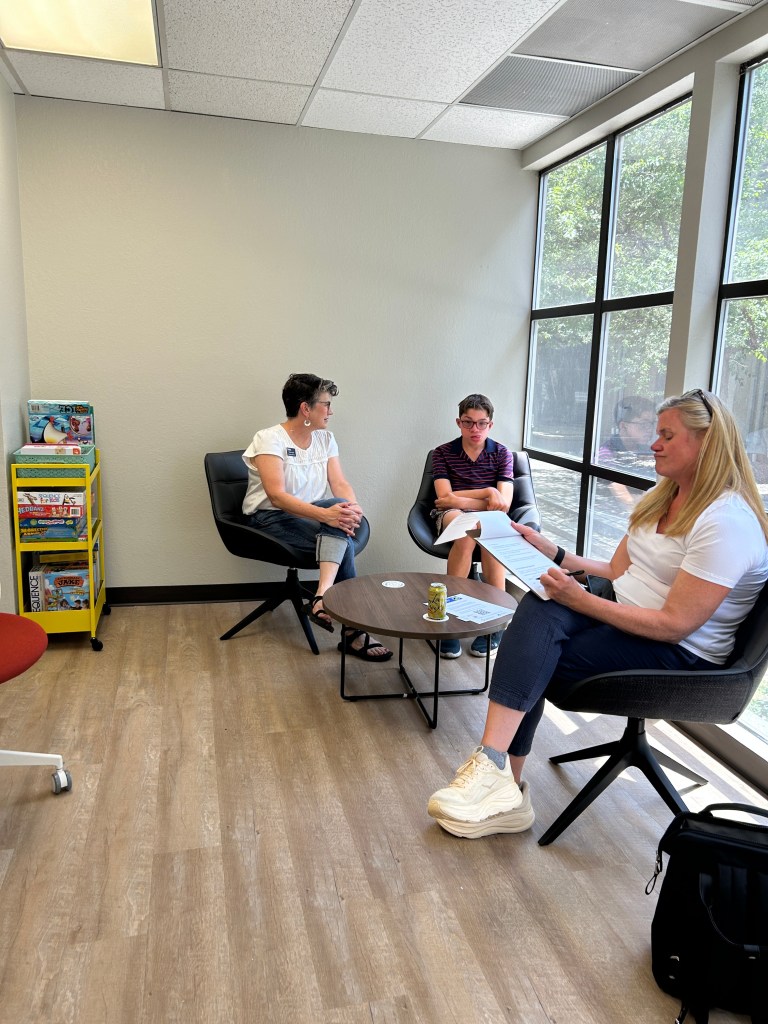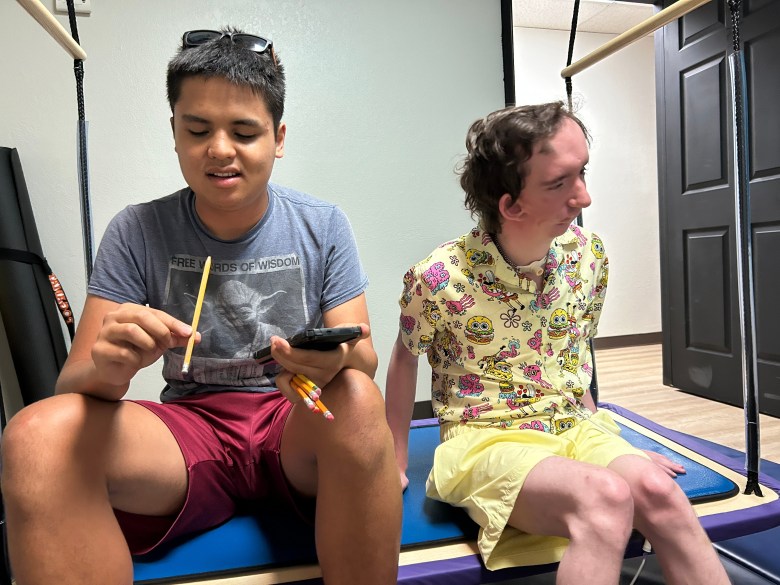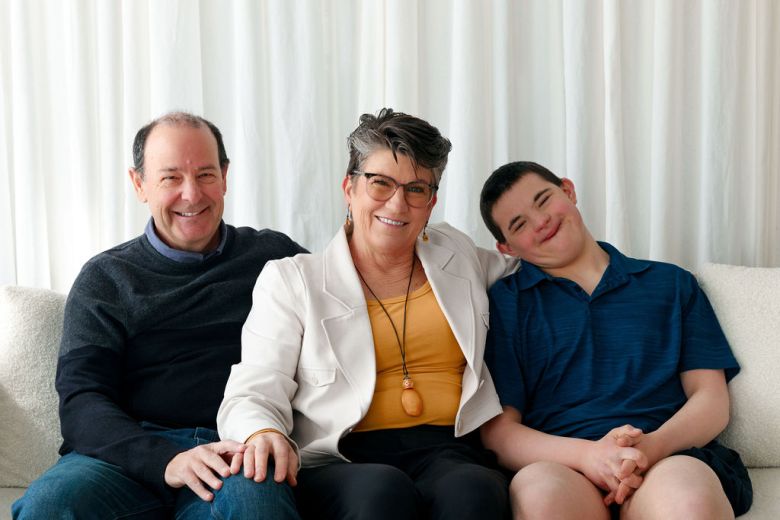Just south of downtown Littleton, the new Disability Innovation Hub is redefining what community can mean for people who have disabilities and neurodivergence. Since opening its doors on June 1, the hub has become a popular gathering place where members of all ages can connect with innovative providers — yoga instructors, speech therapists, employment specialists — and, most importantly, with each other.
Founded by Maureen Welch, who serves as the organization’s executive director, the hub was created to offer something different from traditional adult day programs or rigid, one-size-fits-all services.
“Innovation, to me, means something out-of-the-box,” Welch said. “We have the disability ‘industrial complex,’ — the stuff that checks a box, that you can bill through Medicaid — but we wanted this to be much more flexible.”
Welch said she wanted to go beyond the typical day programs for adults, meaning the specialized programs that offer supervised activities for adults who need assistance.
“I think a lot of parents and members have always been told that adult day programs are the only path after high school is finished. The hub is not a program. It’s a place and it’s a community,” she said.
For the Disability Innovation Hub, going outside-of-the-box means offering a wide array of unique activities, services, clubs and member-led events that empower members to be independent and connect with each other.

Some clubs the hub offers include a writing club, gaming club and a workout and swimming club.
The facility also has employment specialists work with members who need help securing a job or even starting their own business.
Welch said a person’s employment specialist might even arrange micro-employment opportunities for members, or jobs where short-term tasks can be completed, such as bussing tables at a local restaurant for a couple hours one day and stocking shelves at a retail store for half a day the next.
“One of my son’s dreams is to start a dog walking business, but self employment isn’t traditionally very encouraged in disability circles,” she said. “We want to focus on the members and ask what they want to do and how we can get them to love their job.”
Welch’s 18-year-old son has autism, Down syndrome and is non-verbal. After traditional schooling couldn’t meet her son’s needs, she began homeschooling him.
“I’d love to see our space be the space I wish we had when our son was homeschooled,” she said.
Welch is also the founder of Navigating Disability Colorado, an advocacy company she launched in 2021 that helps people apply for a Medicaid waiver which enables states to waive certain federal Medicaid requirements, like income limits.
Amid potential Medicaid cuts from the passing of the budget reconciliation bill — known as the one big, beautiful bill — Welch said she doesn’t have to worry about the hub’s funding, as the organization doesn’t have reliance on Medicaid.
Welch said some parents or professional partners assume the hub only serves younger people because of Medicaid requirements.
“As a member community, we don’t have to worry about billing Medicaid, because … whoever wants to join, can join,” she said.
People who are interested in becoming a member of the Disability Innovation Hub go through an initial consultation with staff to determine how much support is needed. Then, a membership is arranged and individualized.
“We have one member who just pops in and out, and he’s like, ‘I love that I don’t have to tell you when I’m coming – I feel like a real adult,’ and I said, ‘you are a real adult,’” Welch said.
Members can drop-in for $30 per day, or purchase a 20-pack of visits for $500. An unlimited membership is $199 per month or $1,988 annually.
For individuals with intellectual or developmental disabilities living in Denver’s metro area, funding for the membership can be requested through the mill levy for unmet needs, or Colorado’s mill levy override.
A mill levy override allows local authorities, such as school districts, to seek voter approval for increased property taxes to support needs not covered by the standard mill levy. This money from the taxes goes directly to the taxing authority, according to the Colorado Department of Education.
Welch recalled one hub member, who has higher support needs, has struggled to get out of the house since the COVID-19 pandemic. Her family then started bringing her to the Disability Innovation Hub, where she would sit in the sensory swing that is swaddle-designed to reduce anxiety.
“Her parents sent me these pictures of pure joy,” Welch said. “Her dad said she got out of the car and even ran up to the hub doors and wanted to go in, which they (hadn’t) seen happen in five years.”

In her experience advocating for the disability community, Welch said she has connected with other families who don’t know how to get their loved one with a disability out of the house.
“I say, well, they have to come and see (the innovation hub). Really what we’re creating is a place for people (who) feel like they don’t belong anywhere else,” she said.


